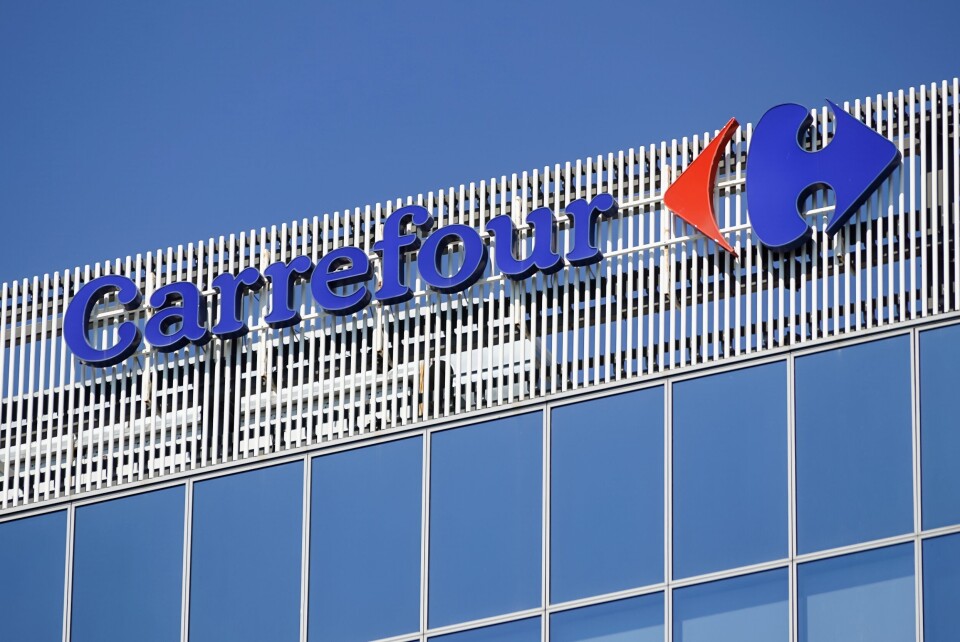-
Mandatory militarised civic service for youths in France aged 16-25 starts this autumn
Journée de défense et de citoyenneté is compulsory for many young people
-
Portuguese man o’ war sightings force French beach closures
Venomous species is often mistaken for jellyfish
-
French weekly weather forecast July 28 - August 1: unsettled north, high winds in south
A new low-pressure system is due to move in from the Atlantic, bringing wet and blustery conditions
French supermarkets agree to energy-saving measures to control prices
Steps such as switching off shop signs after closure should help to keep food prices – already subject to rapid inflation – down

Most major supermarket chains in France, including Carrefour, Monoprix and Lidl, have agreed to collectively introduce energy-saving measures in the face of rising electricity bills.
It includes switching off illuminated shop signs after closure, reducing the brightness of lights in the shop area, staggering ice production and modifying ventilation rates when the shops are closed.
The agreement was coordinated by the distribution-sector federation Perifem, which stated that the savings were necessary to prevent the supermarkets from having to pass on the costs of rising electricity bills to consumers.
“Electricity bills represented 30% of [the shops’] net expenditure before the recent surge in energy costs,” Perifem wrote in a press statement.
“With costs expected to double from 2023 onwards, businesses are likely to be weakened and their prices are likely to rise.
“It is therefore essential to reduce the energy bill and to work together to avoid too great an impact on prices for consumers.”
The cost of food in French supermarkets could increase by as much as 8.2% on average by the end of this year, a study by Allianz Trade published May 24 shows.
The energy-saving measures were agreed to by the heads of: E.Leclerc, Carrefour, Système U, Intermarché & Netto, Auchan, Casino, Franprix, Monoprix, Lidl and Picard.
Perifem hopes that these simple measures can serve as a blueprint for other shops and retail outlets to adopt.
France’s energy transition minister Agnès Pannier-Runacher welcomed the agreement but called on shops to “continue the work and go even further”.
“It is a question of taking all measures that will have immediate effects so that we can get through the [coming] winter, but also to sustainably reduce our greenhouse gas emissions,” she said.
Je salue les premiers engagements de #sobriété énergétique annoncés par le secteur de la grande distribution, dans le cadre du plan que nous avons lancé.
— Agnès Pannier-Runacher 🇫🇷🇪🇺 (@AgnesRunacher) July 18, 2022
C’est une première étape qui est franchie avec des mesures immédiates. Il nous faut poursuivre et aller plus loin encore ! https://t.co/GVjn0C9Rbn
France’s energy-saving plan
The supermarkets’ agreement is in line with a call from President Emmanuel Macron on July 14 to establish a nation-wide “energy-saving plan” (un plan de sobriété énergétique).
Read more: Ukraine, energy, pensions: Key points of Macron’s July 14 interview
The government is set to unveil this plan in September with the goal of reducing energy consumption by 10% compared to 2019 levels.
To tackle the energy crisis, six working groups have been established that will work with key actors in their assigned sectors to introduce energy-saving measures.
The sectors are: public administration, companies, public-receiving businesses and supermarkets, local authorities and housing.
Related articles
Plan for '2-for-1' deals in French supermarkets axed after backlash
Horseradish suggested as alternative amid French mustard shortage
Minimum wage in France to rise again due to increased inflation
























